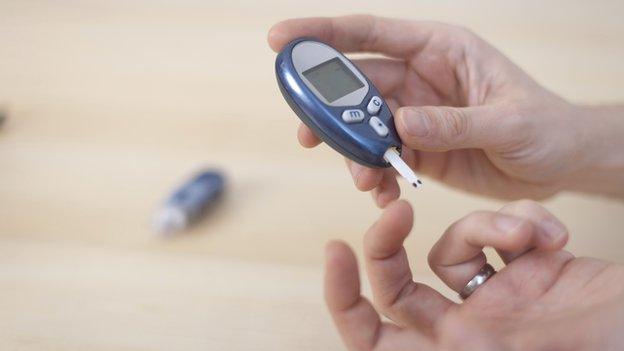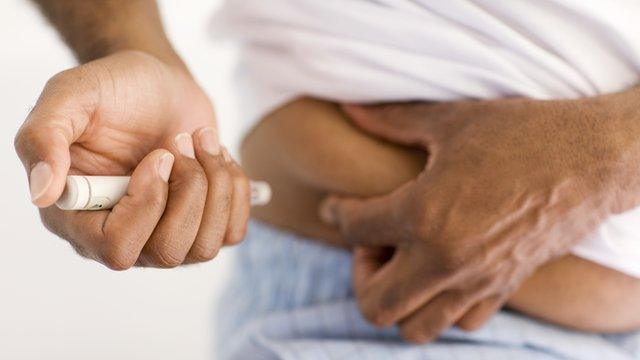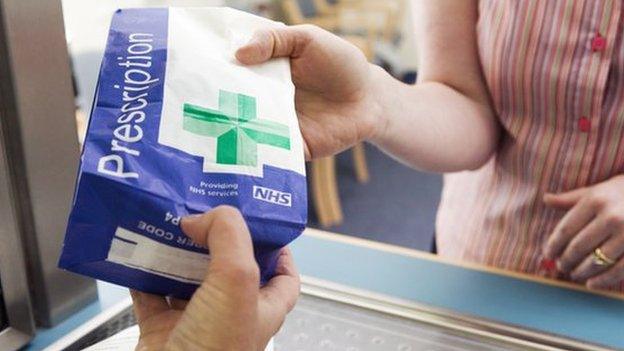Diabetes patients to get 'information prescriptions'
- Published

GPs across the UK are being advised to give "information prescriptions" to any diabetic patients who do not have their condition under control.
It is hoped that the page-long printouts will nudge patients in the right direction to avoid serious long-term complications such as amputation.
If someone is not meeting their blood glucose target, for example, an alert will flash on their GP's computer.
Experts say only a third of diabetics have good control of their condition.
According to the charity Diabetes UK, only 36% of diabetes patients meet the three targets set for blood pressure, cholesterol and blood glucose levels.
'Long and healthy lives'
The A4 printouts that patients can take home with them offer tips on how to gain better control over risk factors that greatly influence their long-term health.
A pilot scheme, run by the NHS and Diabetes UK, found information prescriptions were well received.
Barbara Young, chief executive of the charity, said: "Our ultimate goal is for people with diabetes to live as long and as healthy lives as possible, and information prescriptions will be an incredibly powerful tool to help them achieve this."
She pointed out that people with diabetes only see a healthcare professional for a few hours a year and, the rest of the time, must manage their condition themselves.
Diabetes tsar Dr Jonathan Valabhji said: "The personal cost to individuals and the financial cost to the NHS of diabetes complications are immense.
"Information prescriptions are a really positive development that will enable primary care to help people with diabetes better understand and take ownership of their diabetes, and so empower people to avoid developing complications in the long term."

Diabetes
There are two main types: type 1 and type 2
In type 1, which accounts for about 10% of diabetes, the body's immune system destroys the cells that make insulin
Type 2 diabetes is when the body either cannot make enough insulin or the body's cells do not react to it
Insulin treatment is always needed for type 1 diabetes, while if you have type 2 you may be able to control your symptoms by eating a healthy diet, exercising regularly and monitoring your blood sugar.

- Published19 November 2014

- Published6 February 2014

- Published10 May 2014
